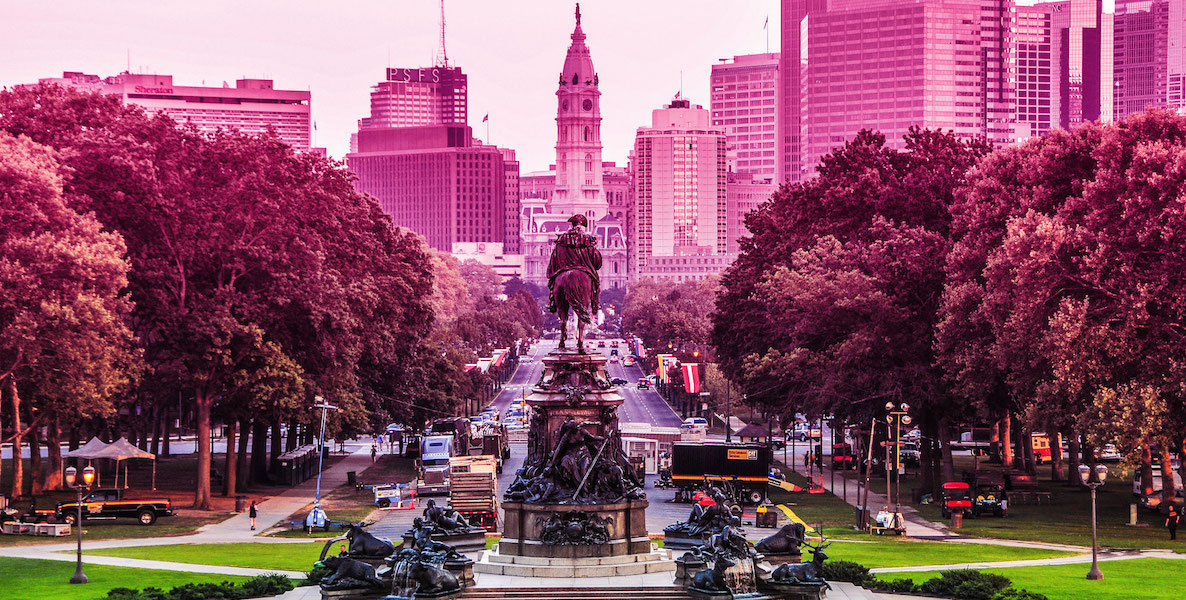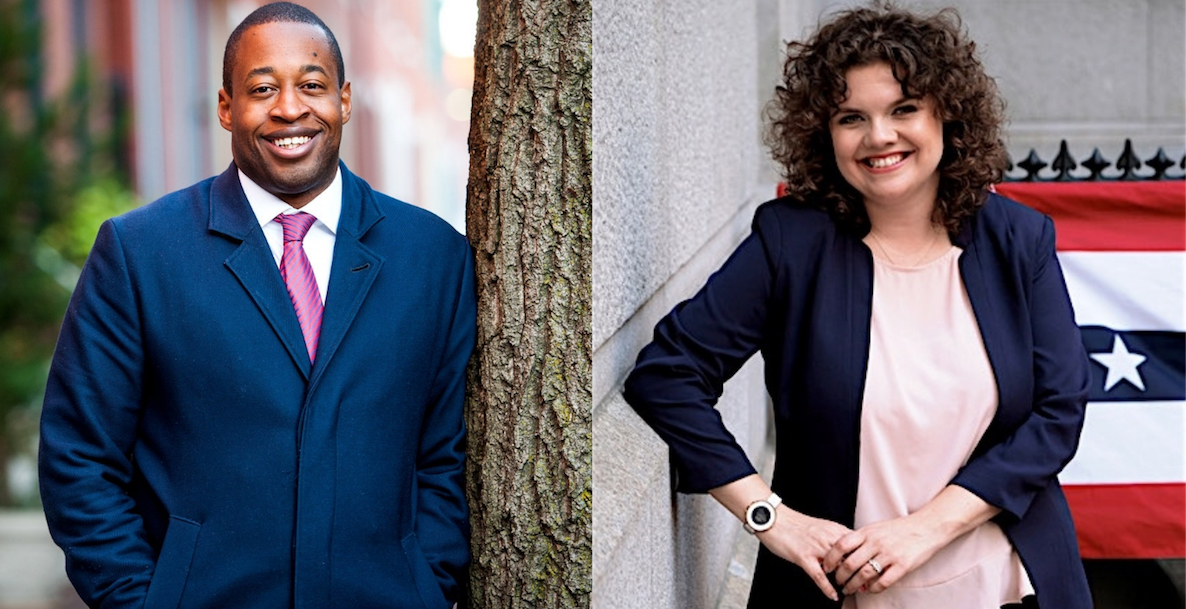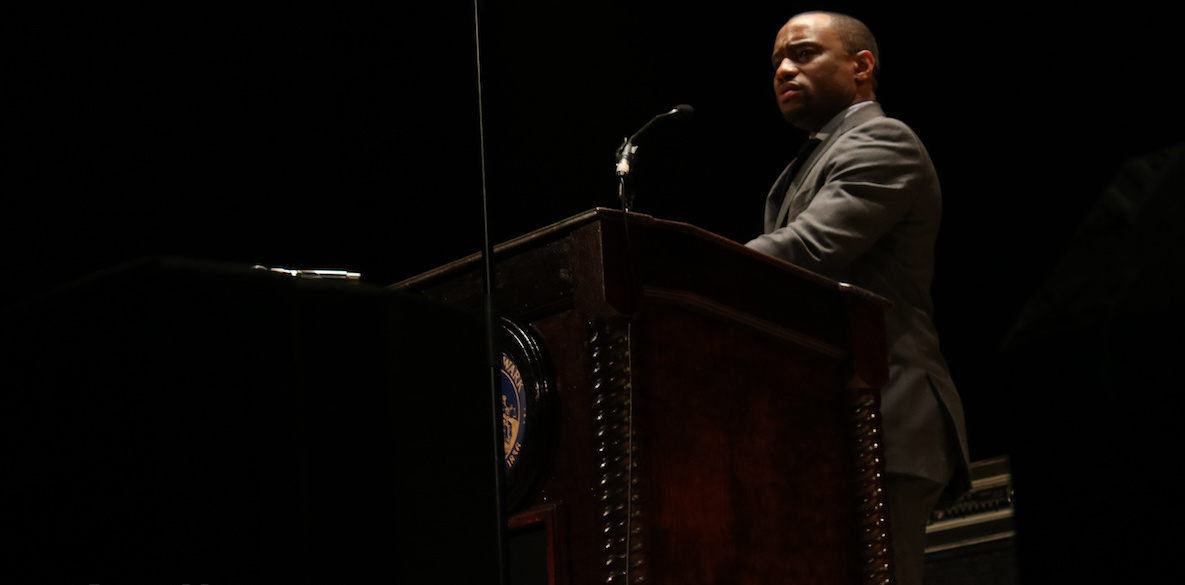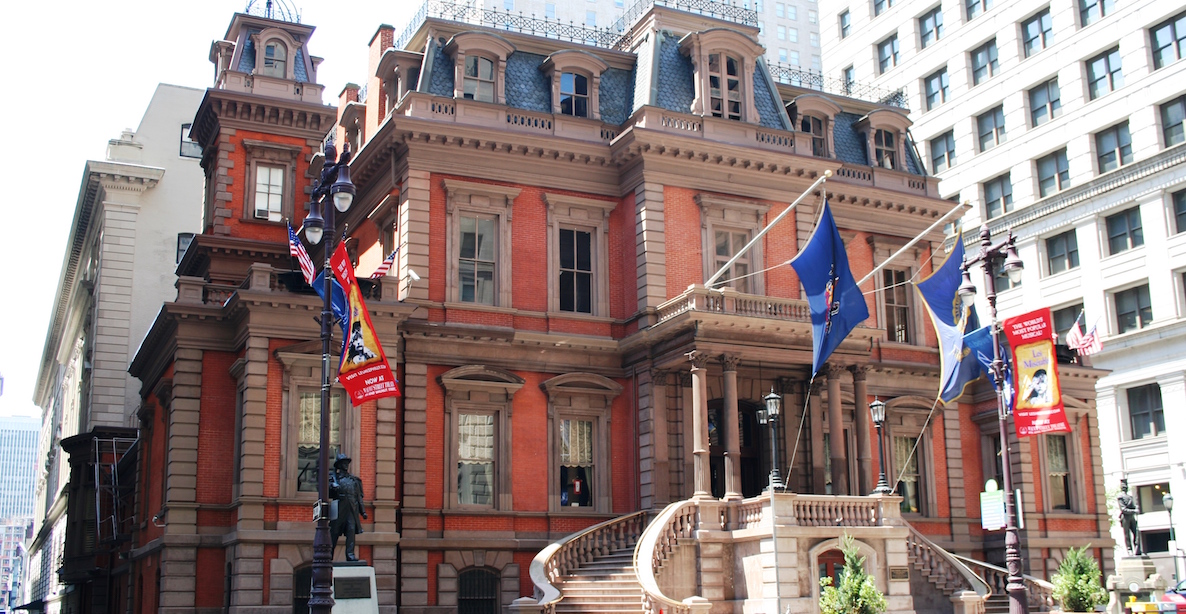At one point during this week’s panel discussion at the Union League organized by the Center City District that featured an eclectic mix of CEOs, civic leaders and entrepreneurs, Brandywine Realty Trust CEO Jerry Sweeney, arguably the city’s most vociferous voice for economic growth, zeroed in on one of the key roadblocks that continues to consign Philadelphia to an economic growth rate that lags behind 23 of our top 25 peer cities.
“We suffer from an amazing lack of courage from a public policy perspective,” said Sweeney. “There is no courage involved when we pass laws without thinking about how to pay for them.” Sweeney argued that, too often, we pass legislation driven largely by anecdote, and he called out members of his own class—the business elite—for not joining him in insisting that inclusive economic growth be “our North Star.”
Sweeney’s comments made me think of the Fair Work Week legislation that Council recently passed. Don’t get me wrong: From a fairness perspective, there’s no question that helping some 130,000 Philadelphia citizens by mandating predictive scheduling in the workplace is a good thing. But let’s not pretend that this will make a dent in our horrific poverty rate, or that it will jumpstart our anemic economic growth. It’s fair, but it doesn’t increase opportunity, and nor is it growth-oriented.
The ideas at the Union League were great, but I couldn’t help but wonder if they were being wasted on the already converted. Change will only come when middle class workers who feel their city has flipped them the bird become convinced that there’s such a thing as inclusive growth, and that it will benefit them.
When he kicked off the Union League event, visionary CCD CEO Paul Levy starkly laid out the problem. At a time when the federal and state governments have left cities to fend for themselves, the political left has defaulted to adopting redistributive policies at the local level. Problem is, in Philadelphia, there’s hardly any tax base left to tax. Levy has said it, and written it for The Citizen, often: “We are not a tale of two cities,” he reiterated at the Union League. “We are a tale of one city that’s not growing fast enough to address locally the problems we inherit.”
Despite the success of Center City and University City, (which combine for 53 percent of all Philadelphia jobs), we still suffer from an exodus of middle and working class residents. Since 2010, 62,000 more residents of city neighborhoods left for homes in the suburbs than moved from the suburbs into the city. In both black and white neighborhoods outside downtown, Levy explained, more households who make over $125,000 per year are moving out of the city than moving in. Astonishingly, 81 percent of households that left Philadelphia between 2010 and 2016 had no children, giving lie to the conventional wisdom that it’s our subpar schools driving urban flight.
It’s actually not that complicated: People follow jobs. Outside of Center City, Levy reports, 40 percent of Philadelphia’s workforce reverse commutes to the suburbs every day. In contrast, only 15 percent of New York City residents do the same.
That’s what Levy means when he says we’re one city that’s not growing fast enough. His panelists all, like Sweeney, had trenchant observations to make when asked: Where do we go from here? At the end of the day, though, one critical question was left unanswered by the Union League panel: How do we get where we want to go in a way that doesn’t leave half the city behind?
![]()
Della Clark, President of The Enterprise Center, talked about the promise of Opportunity Zones to spur investment; Michael Forman, CEO of FS Investments (a supporter of Citizen events), talked about his company’s financial literacy program—currently in 11 schools—and laid out the type of programmatic thinking we seldom see from government: the city ought to set goals and timetables, he argued, so we can “work toward our goal of growing the pie and making it more attractive to do business in Philadelphia.”
Mike Pearson, CEO of Union Packaging, spoke of our need to “raise the literacy level of the problem,” positing that there’s “no common dialogue about how we got to this situation,” before recommending three books that, he promised, would shed precisely the right amount of light, including the seminal The New Jim Crow by Michelle Alexander; Shari Reams of PNC Real Estate championed pursuing a stable investment climate and highlighted PNC’s 60 new affordable workforce housing units in Philadelphia; and entrepreneur and philanthropist Richard Vague highlighted the revolution that is already here in the burgeoning genetic engineering space, in which, he explained, Penn’s recent $12 million investment has leveraged $300 million in outside investments for companies that are doing groundbreaking stuff, like advancing cancer cures and restoring sight to the blind.
In all these cases, cities are no longer waiting for Superman to bail them out. Nor are they just reflexively tax and spending, the go-to move of Mayor Jim Kenney, who has increased spending by 17 percent during his time in office, with little return yet to show on that investment.
It was a stirring conversation that made you feel we’re not that far away: Great stuff is happening here, and there are local patriots thinking deeply about how to drive change. But, after a while, something started to feel a little…off. The speakers were great, and Levy was, as usual, dead-on.
But I kept coming back to the fact of where we were: The Union League. Now, I have nothing against hoity-toitiness; it’s just that, strategically, it felt odd to have a conversation about enlightened economic growth in one of the last bastions of the one percent. I ain’t hating on anyone; but if we really want to spur economic growth that reaches all of Philadelphia, wouldn’t we have a better chance of being listened to if we took this joint on the road, and have these conversations in church basements and Free Library branches in the very neighborhoods Levy singles out as those most in need of pro-growth interventions?
As Levy’s statistics illustrate, more than half of our city feels like they’ve been left behind. The ideas at the Union League were great, but I couldn’t help but wonder if they were being wasted on the already converted. Change will only come when middle class workers who feel their city has flipped them the bird become convinced that there’s such a thing as inclusive growth, and that it will benefit them.
![]()
For too long, middle class workers, and those aspiring to the middle class, have been given a false, overly simplistic choice: Tax cuts for the rich on one hand, safety net handouts on the other. What if the city said to its citizens, there are ways to smartly invest in your hopes and dreams, and we’re going to bet on you. Because we’re all in this together.
That would entail putting forth a plan for truly inclusive growth, one in which the plutocrat class sees its own self-interest as inextricably tied to a working guy getting a raise and not having to worry about whether he can afford to make next semester’s ballooning tuition payment. And it would likewise require of the average worker that he not resent capitalists making a fair share of scratch, provided crony capitalism and greed and shady dealings get checked at the door. The good news is that other cities have experimented with novel ideas that, in effect, say to plutocrat and worker alike: Your good fortune aligns with the common good.
Here are just a few of my faves:
The Opportunity Zone Opportunity. Della Clark was right to talk about the transformative potential of Opportunity Zones. Written into last year’s Trump Tax Cuts and Jobs Act, the designation of over 3,800 census tracts across the country as “Opportunity Zones” was pushed through by Republican African-American Senator Tim Scott of South Carolina, not coincidentally after Trump’s shameful morally relativistic response to the racist melee in Charlottesville. When Scott didn’t bury Trump in the aftermath of that horror, he was able to get his legislation on the tax cut agenda, giving private investors a new incentive—centered around the deferral, reduction, and elimination of capital gains taxes – to invest in places that are usually overlooked.
“Given this impetus, which could unlock hundreds of billions of dollars in equity capital, private and public actors are talking about community investment more than any time in recent memory,” writes Drexel’s Bruce Katz.
The irony ought not to be lost on progressives. Thanks to this provision, Donald Trump just might end up having done more to move much-needed capital into distressed urban communities than his predecessor. If we’re going to truly be solutions-focused and not driven by ideology or personal animus, progressives should suck it up and take advantage of the Opportunity Zone opportunity, no matter who gets the credit.
Solving Our Own Problems. Speaking of Katz, he’s the national guru for this type of pro-opportunity, pro-growth economic development. When he spoke at our Ideas We Should Steal Festival last month, he eschewed the usual options of seeking bailouts or reflexively tax and spending, and talked instead about the ways cities can rise up and solve their own problems.
“In Copenhagen and Hamburg, they have public asset corporations, public or privately owned and publicly managed institutions that are able to take all the land owned by the government—city, county, state, port authority, airport authority, stadium authority, redevelopment authority—and put it into one corporate vehicle and get the revenue from the disposition of that publicly owned land to invest in infrastructure, innovation, inclusion,” Katz said.
If we really want to spur economic growth that reaches all of Philadelphia, wouldn’t we have a better chance of being listened to if we have these conversations in church basements and Free Library branches in the very neighborhoods Levy singles out as those most in need of pro-growth interventions?
Of course, here, we know that the city is—and shouldn’t be—in the gas, water and airport business. (In 2015, Council President Darrell Clarke shamefully didn’t even hold a single hearing on the Nutter administration plan to sell the Gas Works, which would have been at least a net $400 million windfall for the city). But beyond those assets, there is no master list of all that the city owns. Katz says that’s no surprise.
“You think there’d be a website, but it doesn’t work like that,” Katz said. “If you want to actually finance large scale infrastructure, you need to know what the government owns, the value of what it owns, and have a disposition strategy so the public can benefit from it as opposed to having a fire sale because everyone is desperate. I think with big data and analytics we can begin to build a platform for this new kind of finance in the U.S. We act like we’re poor. We’re not. These are the wealthiest cities in the world. What we don’t have are the mechanisms that are tried and tested primarily in Northern Europe to get beyond tax and regulate.”
Borrow From The Silicon Valley Playbook in Urban America. Katz has been intimately involved with the nonprofit Accelerator for America, the brainchild of Los Angeles Mayor Eric Garcetti, which brings Silicon Valley-like support in the form of networks, mentorship, and capital to civic entrepreneurs on the front lines of building ladders to the middle class. Their slogan reads: “With Washington broken, local innovators are taking action.”
Meantime, countless cities are birthing “innovation districts” in or near low-income areas that desperately need infusions of capital. These ecosystems are engaged with their cities, not sequestered from them. They incorporate their neighborhoods’ citizens into their plans and capitalize on the buildings and historical features already there, improving declining areas while providing more opportunities for residents and businesses. Oklahoma City has transformed its once-golden Automobile Alley, which had seen decline in the 1970s and 1980s, into sought-after real estate by revitalizing its bevy of old car dealerships. And Durham, North Carolina’s downtown is booming thanks to what one researcher calls the city’s “formula for equitable, far-reaching equitable success.”
Other examples abound, from Chattanooga, Tennessee, to San Diego to Buffalo, New York. In all such case studies, startup culture isn’t separate and apart from pockets of challenge, but, rather, tethered to it. In Detroit, Motor City Match is in its third year of supporting inner-city entrepreneurs with grants, mentoring, and workspace. The grants have generated $33 million of investments in long-neglected neighborhoods. And just last week, our own Michael Nutter and Christina Weiss Lurie were among the bold-faced names behind 100K Ventures, the accelerator put together by venture capitalist Robert Wolf to focus on investing in early stage companies in Flint, Michigan. It’s a for-profit enterprise, with a social impact bent.
Now, not all of these programs will be widely transformative. But in all these cases, cities are no longer waiting for Superman to bail them out. Nor are they just reflexively tax and spending, the go-to move of Mayor Jim Kenney, who has increased spending by 17 percent during his time in office, with little return yet to show on that investment.
Other cities are putting inclusive economic growth front and center on the agenda. And they’re telling that story to themselves, and about themselves. Levy and his panel are saying, and doing, all the right and practical things. They’re driven by a sense of local patriotism, and are loyal to data, not ideology. But here’s hoping that the next step is taking that message of inclusive growth out of the Union League and onto the streets so that those who feel left out can start to feel like they once again have a place in the future of Philadelphia.
Photo: Peter Bond via Flickr






